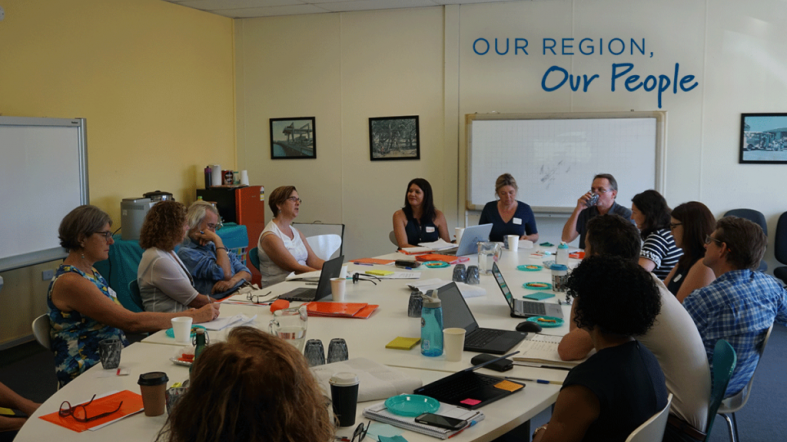YETI’s Schools Up North (SUN) pilot program, funded by Northern Queensland Primary Health Network (NQPHN) and now in its second year, is a capacity building project facilitated at both Western Cape College in Weipa and Tagai State College on Thursday Island. The SUN program aims to support teachers and student support teams to respond to the mental health and social and emotional wellbeing of students.
For young people, disengagement from school is a major risk factor to their future wellbeing. At the same time, mental health vulnerability increases the chances of them having difficulties at school and exiting the educational system.
The SUN program focuses on up-skilling teachers to better recognise and understand the challenges presented by students with mental health difficulties in remote North Queensland schools, and provides them with skills to minimise the risk of those students disengaging from their education.
YETI Convenor Helen Travers said the program compliments existing Education Queensland Programs that address school-based behaviour management and supports the social and emotional wellbeing of staff.
“The SUN program consists of a series of reflective workshops with secondary school teachers and uses strategies to facilitate discernment of resources to enhance new teacher retention in the rural environment and build capacity to respond appropriately to the needs of students with mental health vulnerabilities,” Ms Travers said.
“Aboriginal and Torres Strait Islander youth living in remote communities experience higher risk for poor mental health trajectories, the first signs of which are often emotional and behavioural disorders impacting on their school engagement.
“Considerable professional teacher capacity is required to implement supportive strategies when student behaviour is incongruous with school expectations. However new teachers, or teachers new to the remote area workforce, need to integrate educational practices in unfamiliar social and cultural environments, which can be quite stressful.
“The program creates an education platform that supports new teacher resilience and longevity in the remote school environment, establishes their role in supporting student wellbeing and resilience, and facilitates appropriate referral consistent with the stepped care model of mental health service provision.”
The SUN program also emphasises the importance of relationships, consistency, and trust in both supporting the mental wellbeing of students and in building the resilience capacity of teachers.
“The attitudes and actions of teachers deeply influence the quality of relationships with students, and good relationships can enable students at risk to remain at or return to school,” said Ms Travers.
“Teachers who took part in the pilot program said their classes often consist of multiple students with more complex needs and recognised that a better understanding of individual student needs and applied skills development would help them to make decisions in the classroom.
“The program builds confidence and capacity in participating teachers to recognise and utilise opportunities to engage with vulnerable students and is a major support to enabling emotional resilience.”
Evaluation of the SUN pilot has led to the program being funded for a second phase in 2019. The second phase involves the extension of the project to schools in Bamaga, Cooktown, and Kowanyama, expansion of the program in existing schools to develop previous teacher participants into mentors, and student capacity building utilising peer support frameworks to enhance personal resilience skills.
The SUN program recognises that schools offer an ideal vehicle to improve health awareness, provide early intervention, and improve access to services for young people, especially those who are reluctant to seek help when they are struggling. NQPHN is proud to support YETI on this program, helping northern Queenslanders live happier, healthier, longer lives.



